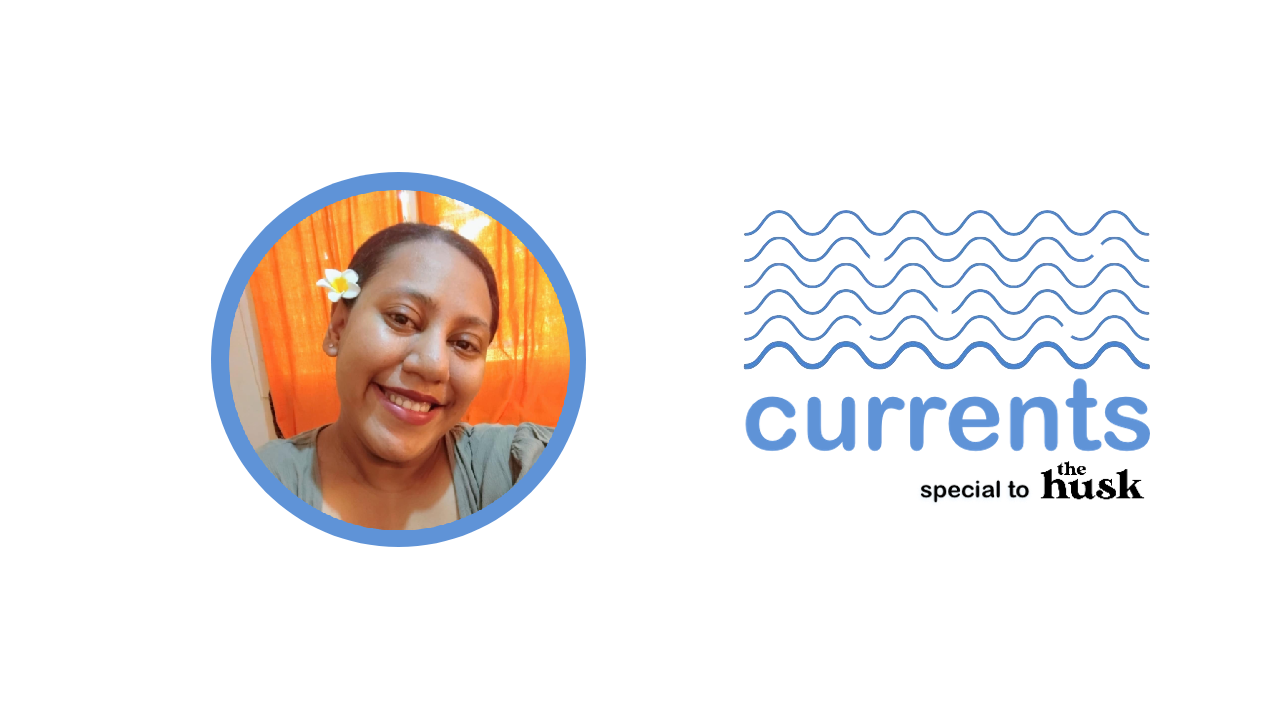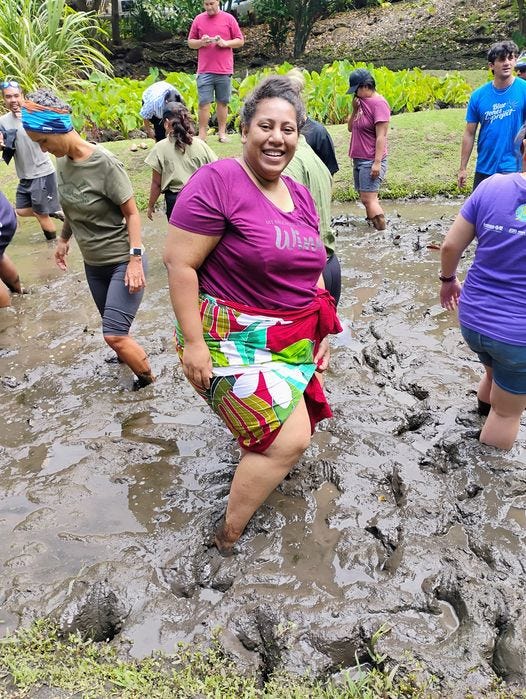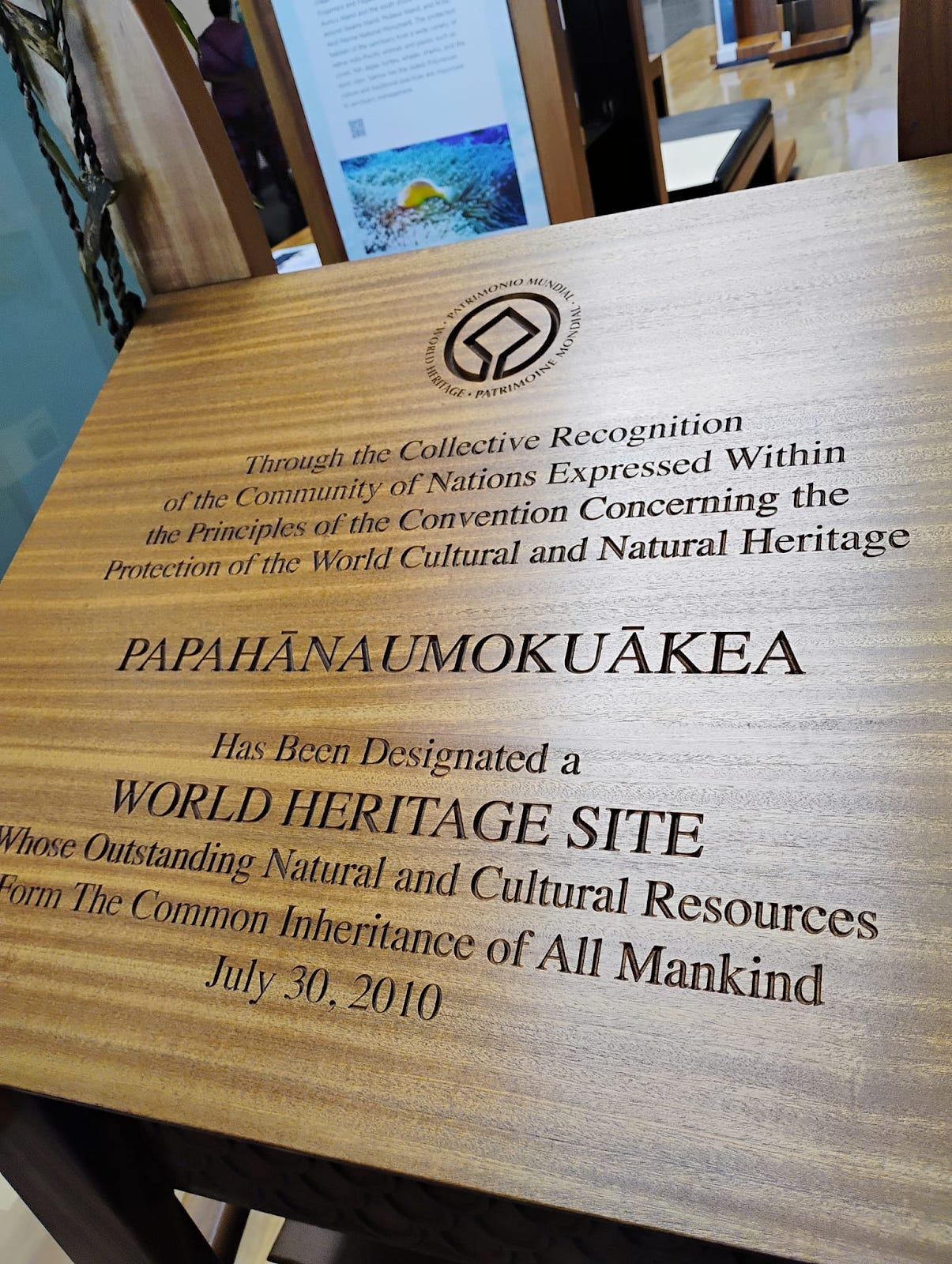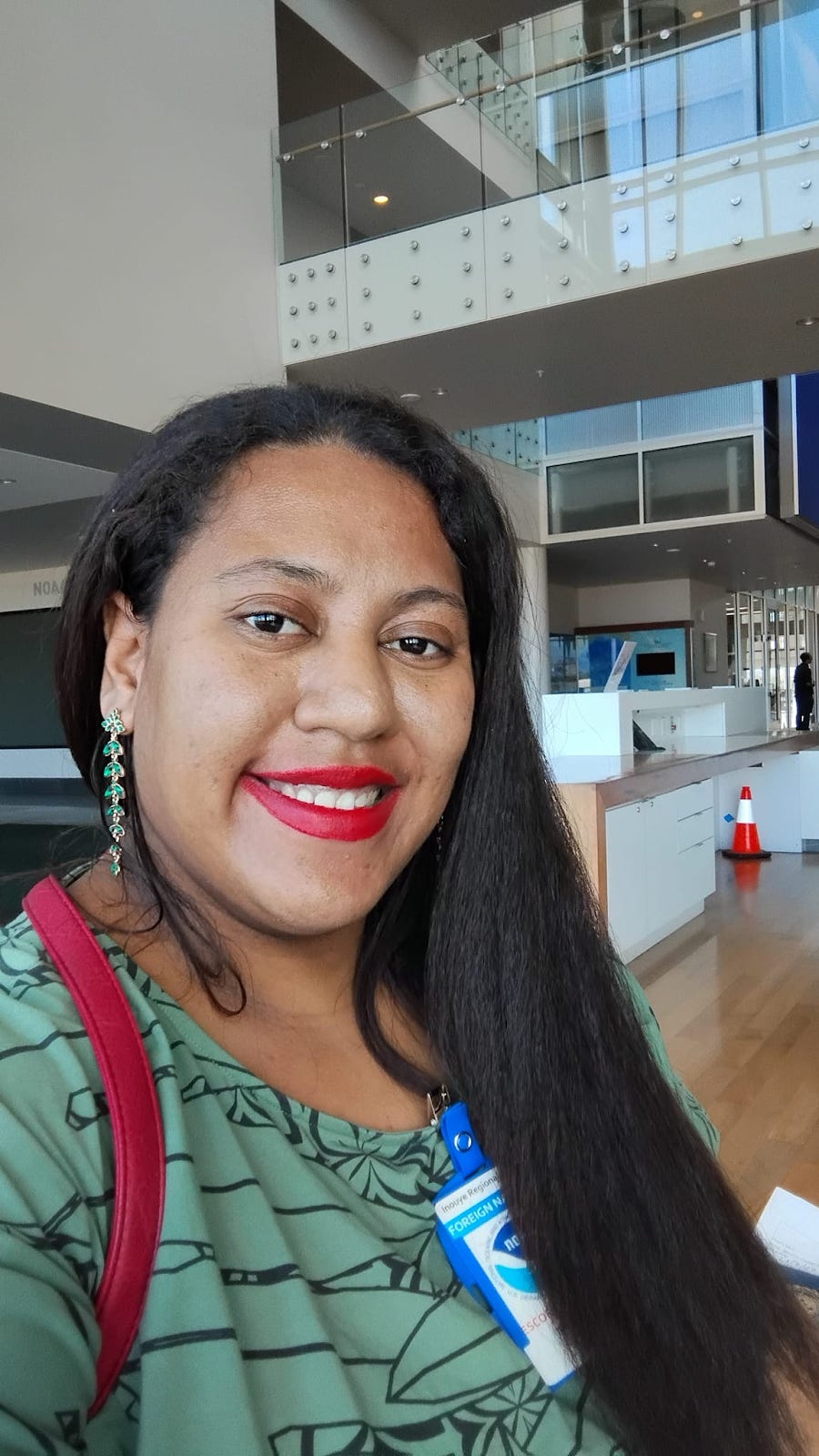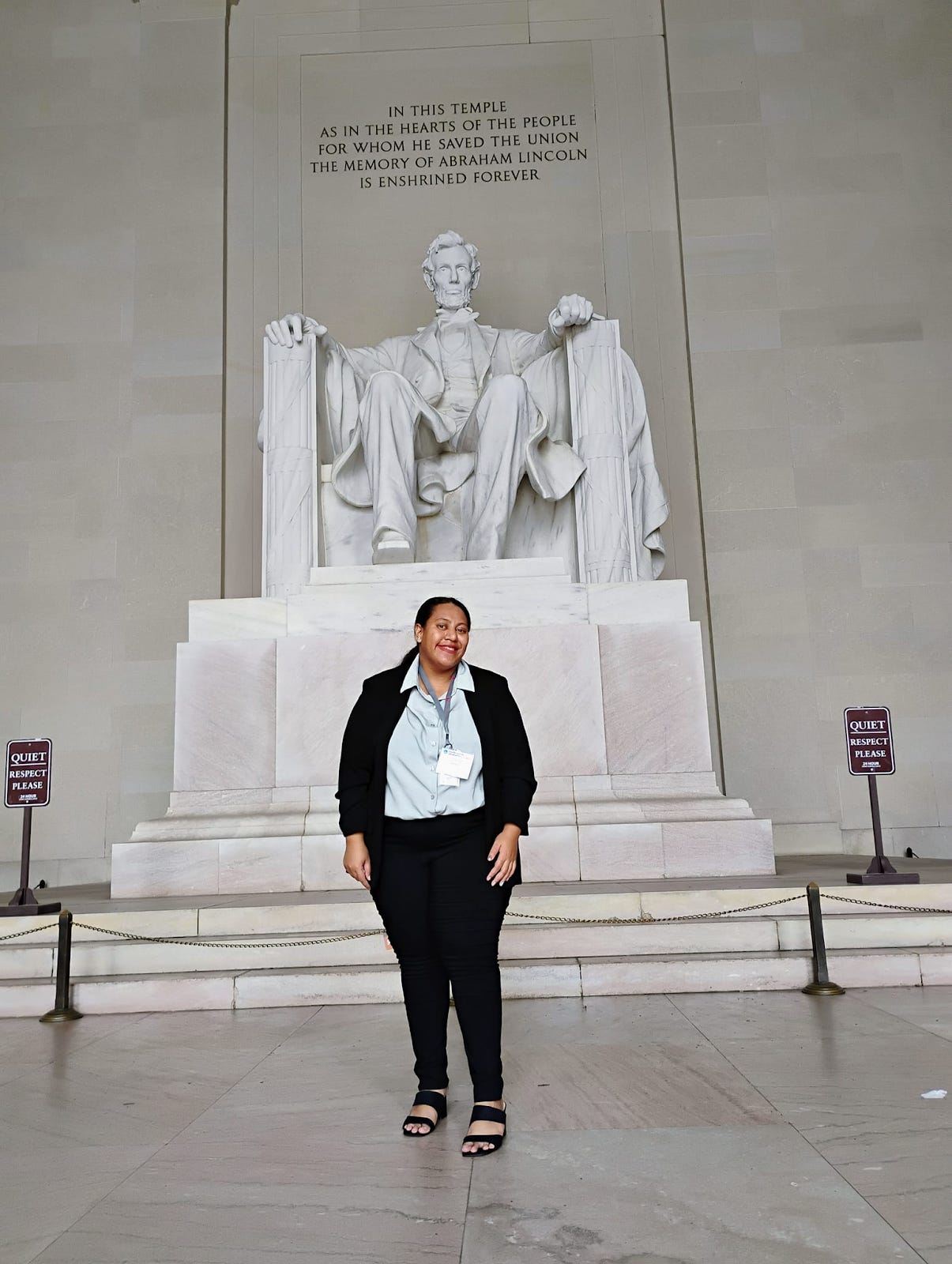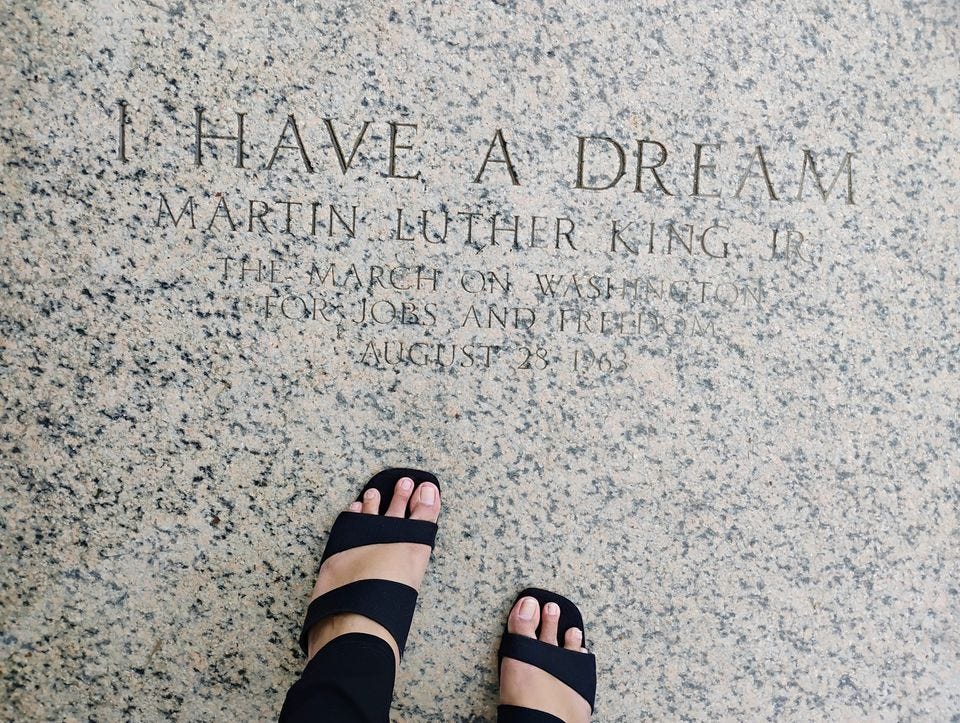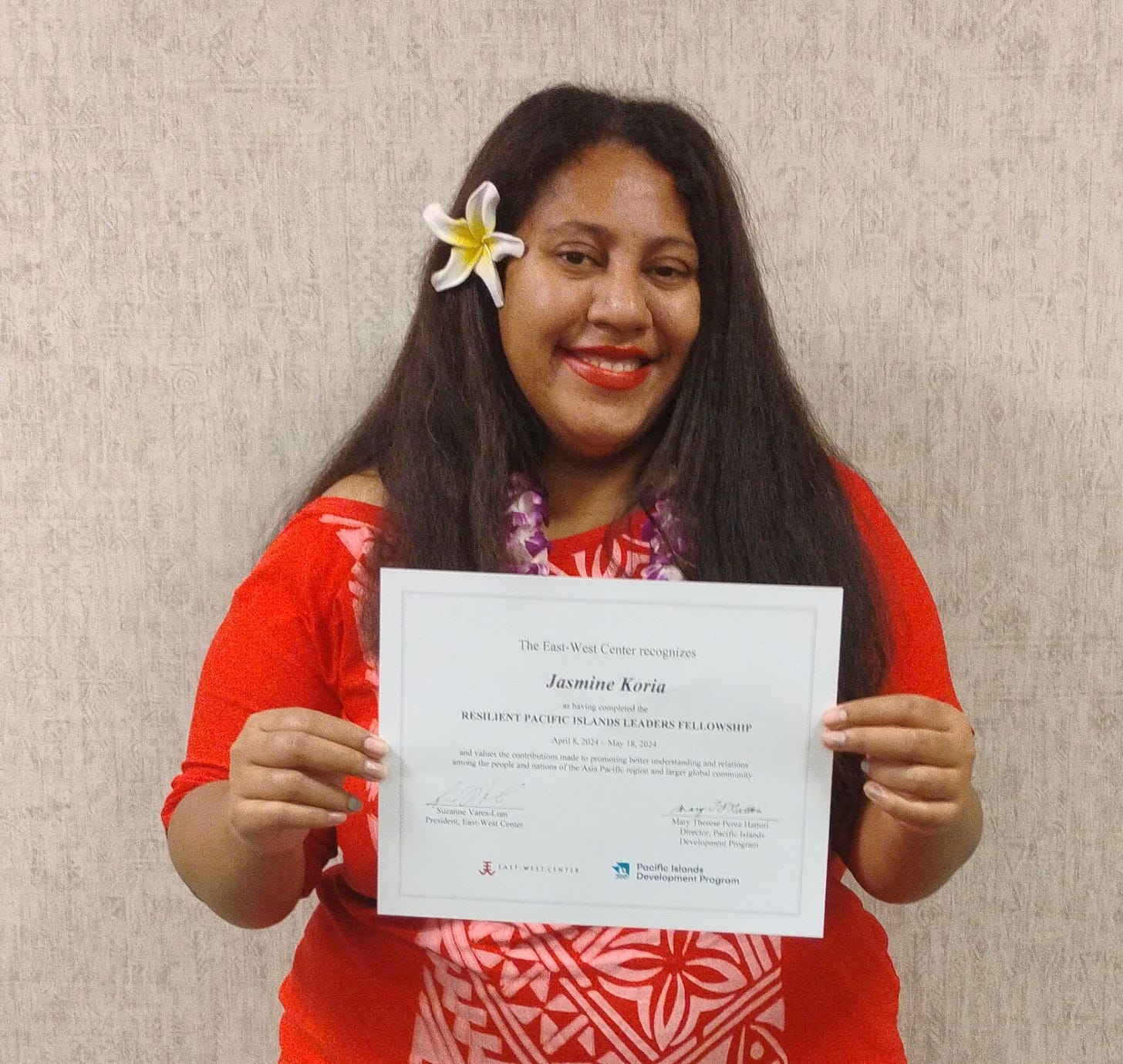Koria: 'A great many dreams came true for me'
A post-RPIL fellowship reflection by Jasmine Koria
Between April and May 2024, some 23 Pacific Islanders participated in the Resilient Pacific Islands Leaders (RPIL) fellowship, hosted by the East-West Center’s Pacific Islands Development Program.1 Some fellows will share the impact the program has had on them in a series of published essays, slide decks, and talk story transcripts. The views in these pieces are solely of the respective authors/fellows.
Jasmine Koria currently serves as the head of the English and Social Sciences Department at Samoa Adventist School. She is also the outgoing curator of the Global Shapers Apia Hub (World Economic Forum) and a key member of Samoa's Commonwealth Youth Forum Taskforce (Policy Sub-Committee) for the 2024 Commonwealth Heads of Government Meeting. Having previously been a lecturer, Jasmine continues to serve as a foundation English tutor at the National University of Samoa when needed. She also volunteers and collaborates with the Brown Girl Woke youth empowerment organization in Samoa to address important social and cultural issues through performing arts and community workshops.
Our first week in Hawaii, we talked as a cohort about entitling ourselves to our emotions. I love a good intellectual or academic challenge, but I was definitely not ready for how close to home those discussions would hit. I grew up in Samoa, a place where it is still not widely acceptable to be overly emotional or, as the colloquialism puts it, “in your feelings.” From our language to our customs, we are a very formal people. This is an aspect of our aganu’u that I love and cherish, but it has been preventative of many discussions that still need to be had. Week 3, with its sessions on Indigenous perspectives of colonialism and imperialism, as well as the social, economic and environmental impacts of Western extractivism, brought me to a place where I became determined to make my classrooms — and all the spaces I work in —safe enough for these sentiments to be explored. It also reminded me that decolonization is not merely a political process. It is cultural, it is economic, it is spiritual, it is environmental, and it is intellectual. I learned English as my first language— it was a “gift” in a country that still depends heavily on foreign aid from English-speaking donors. But it was also a part of the continuing legacy of colonialism in my own family.
We visited a lo’i — a taro plantation — at the end of that week. It was an eye-opening experience for me. I live on a beautiful island where taro is one of our main exports and staple foods, but up until this point, I had never set foot on a taro plantation before. I was a little … hesitant at first to get into the mud and put my hands into the various basins. I had a very traditional upbringing in Samoa: it is not common for women and girls to work outside in the plantations. Visiting the lo’i challenged my own thinking about gender roles in my society and about the ways in which even Indigenous social structures can limit our personal development. Here’s a picture of me, from when I finally got into that wonderfully cool, soothing mud with my colleagues. I had to hand-wash my ie lavalava for two hours afterward. But I have no regrets. I loved it!
Week 4 brought on the continually challenging topic of “Planet.” The sessions made me acutely aware of how little knowledge many of us in the South Pacific have of the traumatic nuclear, mining, and colonial histories of our Northern Pacific neighbors. We learned much about climate funding, and our group’s diverse backgrounds and strengths confirmed for me just how vital the Pacific Way is. We are fighting for the survival of a region that is founded on communal cooperation. Our Oceania has the best chance of achieving the most optimal, inclusive outcomes when that spirit of family/aiga/ohana is carried respectfully into our negotiations with each other. One Ocean. Wansolwara.
We visited the NOAA base, which stands adjacent to the site that was once Pearl Harbor. As a history teacher and an international relations major, this particular place has always been on my bucket list to see. I was able to take many photos, which I’ve since been able to share with my students. There really is nothing quite like having first-hand experience and original images that will hopefully inspire your students to aim high and dream big. Many of the displays and gadgets we were shown were things I had only previously seen on television.
The beginning of Week 5, a Sunday, saw us on a nine-hour flight to the Capitol. It was my first time to the mainland United States and I have to say … it was very interesting. I was completely jetlagged for the first day. On Monday, we went to see the Abraham Lincoln Memorial. Yet another item on my bucket list checked itself off here. I had never in my wildest dreams imagined I would see the actual statue of that president whose picture in my twelfth grade history textbook I once took a photo of and made my Facebook profile photo. As a high school student on a tiny island archipelago, I was that obsessed with world history. What a privilege this visit was! It even gave me the chance to stand in the exact spot where Rev. Dr. Martin Luther King Jr. delivered his I Have a Dream speech. I was there. It is a core memory for me.
The week in D.C. was full-on. We visited the Department of the Interior, Capitol Hill, the White House, Georgetown University, and a host of museums. At each of these meetings, I had the honor of speaking about my country and listening to my colleagues share about theirs. To have Pasifika voices heard and understood in spaces like the U.S. Capitol is not an easy feat. I am very proud of us: We did it. We were there. We took up space where there was none to begin with. We made a ripple. Hopefully soon, that’ll be a wave.
Upon returning to Hawaii, we shared about our leadership journeys. I chose to talk about my work as an educator and of how this fellowship has given both new material and a newfound determination to improve my practice. We each had to present Pecha Kucha style on our final day — this was a temporal and aesthetic challenge which, I’ll admit, I probably could have done better at. All things considered, it wasn’t a bad last day, though. I was able, too, to reflect on the people who inspired me to become a teacher: my late parents. If there is any singular thing I wish I could have had during my RPIL experience, it would be that my parents would have been able to watch my journey and see me succeed. After my presentation, several of my RPIL colleagues shared that they too had lost both their parents. This gave me so much courage as well as a renewed sense that I am not alone. It can be quite difficult to live in a communal space like Oceania when one does not have parents.
Several of us headed out to Mai Tai’s on our last night. I had the best lychee margarita ever, and we all said our “see you laters.” A great many dreams came true for me in the four weeks we spent as RPIL Gen 2. I cannot thank the East-West Center and the Pacific Islands Development Program enough for their vision and for their alofa/aloha/aroha. I am so excited to see how amazingly all my Gen 2 colleagues are going to impact our region and the world. There is so much potential in Oceania. What we really need is more opportunities to express and develop it. The East-West Center and the Pacific Islands Development Program are opening for many people from around the vast moana doors that otherwise would have remained completely locked. RPIL is a fellowship that turns aspirations into possibilities, and possibilities into realities. Fa’afetai tele lava mo le avanoa! Ia toe fa’atutumu e Le Ali’i mea ua fa’agaogaoina.
This newsletter is not affiliated with the East-West Center or the Pacific Islands Development Program. We’re just a bunch of friends who wanted to share our experiences after being part of the 2024 RPIL fellowship. ✌️




